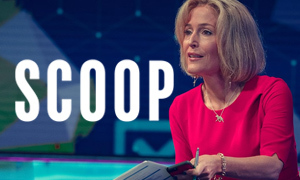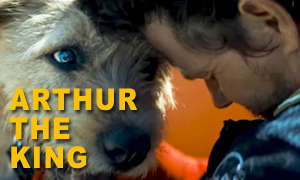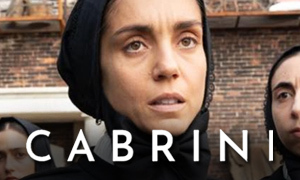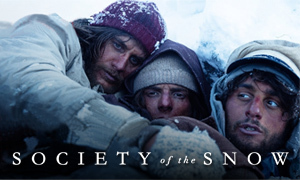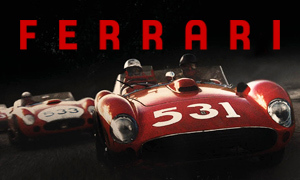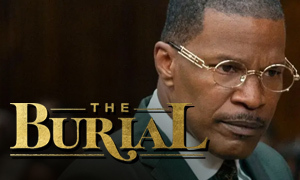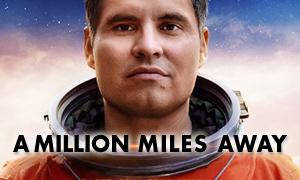The Founder: History vs. Hollywood
| REEL FACE: | REAL FACE: |
Michael Keaton
Born: September 5, 1951 Birthplace: Coraopolis, Pennsylvania, USA | Ray Kroc
Born: October 5, 1902 Birthplace: Oak Park, Illinois, USA Death: January 14, 1984, San Diego, California, USA (heart failure) |
Nick Offerman
Born: June 26, 1970 Birthplace: Joliet, Illinois, USA | Richard McDonald
Born: February 16, 1909 Birthplace: Manchester, New Hampshire, USA Death: July 14, 1998, Bedford, New Hampshire, USA |
John Carroll Lynch
Born: August 1, 1963 Birthplace: Boulder, Colorado, USA | Maurice 'Mac' McDonald
Born: November 26, 1902 Birthplace: Manchester, New Hampshire, USA Death: December 11, 1971, Riverside, California, USA (heart failure) |
Laura Dern
Born: February 10, 1967 Birthplace: Santa Monica, California, USA | Ethel Kroc
Born: December 2, 1901 Birthplace: Melrose Park, Illinois, USA Death: December 2, 1965, Chicago, Illinois, USA |
B.J. Novak
Born: July 31, 1979 Birthplace: Newton, Massachusetts, USA | Harry Sonneborn
Born: June 12, 1916 Birthplace: New York, USA Death: September 21, 1992, Mobile County, Alabama, USA (complications from diabetes) |
Linda Cardellini
Born: June 25, 1975 Birthplace: Redwood City, California, USA | Joan Smith
Born: August 27, 1928 Birthplace: West St. Paul, Minnesota, USA Death: October 12, 2003, Rancho Santa Fe, California, USA (brain tumor) |
Kate Kneeland
Birthplace: Montgomery, Alabama, USA | June Martino
Born: August 10, 1917 Birthplace: Chicago, Illinois, USA Death: January 29, 2005, Palm Beach County, Florida, USA |
Justin Randell Brooke
Born: November 4, 1979 Birthplace: Destin, Florida, USA | Fred Turner
Born: January 6, 1933 Birthplace: Des Moines, Iowa, USA Death: January 7, 2013, Glenview, Illinois, USA (complications from pneumonia) |
Did Ray Kroc lie about his age to serve in World War I?
Yes. Born on October 5, 1902, Ray Kroc (pictured below, left) lied about his age to serve in World War I as a Red Cross ambulance driver. He started training in 1917 when he was only 15 and was sent to France in 1918. Though not shown in the movie, the real Ray Kroc met fellow Illinois native Walt Disney (pictured right) while training for the Red Cross. Disney had also lied about his age. The two men served in Ambulance Company A together but did not stay in touch much after the war, that is until Kroc contacted Disney more than three decades later, in late 1954, about putting a McDonald's on Disney theme park property (it didn't happen, not until the late 1990s). -McDonalds.com
Did McDonald's really start out as a drive-in barbecue restaurant?
Yes. The Founder true story confirms that brothers Richard and Maurice "Mac" McDonald opened a drive-in barbecue and burger restaurant in Arcadia, California in 1937 and then moved it to San Bernardino in 1940. It was successful for eight years, but they eventually decided that the service was too slow and shut it down in the fall of 1948 in order to reopen with a streamlined menu and a more efficient system. They focused on just hamburgers, french fries and soft drinks, and they did away with carhops, which were time-consuming. "This was after the war years," recalled Richard McDonald. "People were pretty impatient. Everybody seemed to be in a hurry, and here we had this very slow system." -Sun Journal
Did Ray Kroc first become involved with McDonald's when he was a milkshake machine salesman?
Yes. In fact-checking The Founder movie, we learned that after serving in World War I as a Red Cross ambulance driver, Ray Kroc mainly worked in sales, and for 17 of those years, he worked as a paper cup salesman for Lily Tulip Cup Company. (Some of his other jobs to help make ends meet included pianist and DJ on a local Oak Park, Illinois radio station.) He transitioned from a successful career selling paper cups into working as a traveling milkshake machine salesman (Ray Kroc Documentary). The McDonald brothers, who owned a small restaurant chain based out of San Bernardino, California, became clients of Kroc's in 1954 after they had purchased eight Multimixers, which sold at $150 a piece (a hefty price back then). The five-spindled milkshake machine promised to make five shakes at a time. "This little fellow came in with a high voice," recalled Richard McDonald in a 1991 interview. "He says, 'My name is Ray Kroc.' My brother and I were impressed with him. He was a very aggressive guy. That's the type it takes to sell anything." -Sun Journal
What attracted Ray Kroc to McDonald's?
Upon his first visit in 1954, Kroc was blown away by the low prices and effectiveness of the restaurant's operation, which had been put in place by its owners, brothers Richard and Maurice McDonald. In particular, Kroc was amazed by how quickly the restaurant could fulfill a customer's order. This was partially due to the fact that they focused on just a few items (burgers, fries and drinks) and had a chain of employees working together to prepare each order. The restaurant was drawing attention, especially after making the cover of American Restaurant Magazine in 1952. Initially, Kroc envisioned how much money he could make if there were hundreds of McDonald's across the country, each equipped with eight of the milkshake machines (Multimixers) that he sold. -McDonalds.com
"In those days, nobody had eight Multimixers in one business," recalled Kroc. "So, I went out there, and I was amazed. They were serving hamburgers for fifteen cents, french fries for ten cents and milkshakes for twenty cents, and basically that was the menu. And I said, 'That's for me.'" In real life, Kroc didn't make a cross-country drive to California. He flew out to Los Angeles and then drove to see the restaurant the following morning. -BBC McDonald's Documentary
What role did Ray Kroc first play in the McDonald's company?
Like in The Founder movie, Kroc proposed that he work as a franchising agent in exchange for a very small slice of the profits. The previous franchising agent, Bill Tansey, quit due to health issues. In 1955, Kroc founded the Franchise Realty Corporation (a predecessor of the McDonald's Corporation), which helped to facilitate the restaurant's expansion while giving Kroc a healthier return on his efforts. It should be noted that franchisees are responsible for creating some of McDonald's most well-known menu items, including the Egg McMuffin, the Big Mac and the Filet-O-Fish. -McDonalds.com
Did Ray Kroc bring the idea of franchising to McDonald's?
No. The Founder true story reveals that Richard and Mac McDonald had already sold more than 20 franchises and opened eight restaurants themselves by the time they met Ray Kroc. In 1954, Kroc got wind that the brothers were looking for help expanding, so he offered to buy the U.S. franchise rights. -Sun Journal
Did taking over McDonald's really contribute to Ray Kroc's first marriage deteriorating?
Yes. However, in fact-checking The Founder, we confirmed that Kroc's relationship with his family had been deteriorating before he became involved with McDonald's (as shown in the movie). Though he had earned nice commissions as a paper cup salesman, his relationship with his wife Ethel (Laura Dern in the movie) and daughter Marilyn was strained as a result. He put everything he had into work, leaving little time for his family. Ethel had opposed his decision to start selling milkshake machines, believing he was giving up a good job and was too old (35) to start a new career. His obsession with work only intensified after he met the McDonald brothers. He and his wife Ethel divorced in 1961, the same year he spent $2.7 million to buy out the brothers' stake in the company. -Grinding It Out: The Making of McDonald's
How old was Ray Kroc when he became a success with McDonald's?
Kroc was 52 when he found success with McDonald's. When teased that he was an overnight success at the age of 52, Kroc reminded people of the long road it took to get there, "I was an overnight success alright, but 30 years is a long, long night." Before McDonald's, Kroc had worked as a piano player, a paper cup salesman, and a Multimixer salesman, the latter being the job that introduced him to the McDonald brothers, Dick and Maurice. -McDonalds.com
Did brothers Dick and Mac McDonald really have no interest in expanding across the country?
Dick and Mac McDonald didn't have any interest in doing it themselves. Ray Kroc suggested that he try to do it for them and they were open to the idea, having just lost their previous franchising agent due to health issues.
Did the McDonald brothers not tell Ray they had sold the rights to use their name in his hometown of Cook County, Illinois to another company?
Yes. Though it's not focused on in the movie, before Ray Kroc could open his first McDonald's in Des Plaines, Illinois, he had to buy out the Frejlack Ice Cream Company's contract for $25,000. It was an added expense that he could barely afford. The cost was even harder to swallow since Frejlack had only paid $5,000 for the contract. -Grinding It Out: The Making of McDonald's
What contributions did Ray Kroc bring to the McDonald's franchise?
As he successfully unleashed the true franchising potential of the chain, Ray Kroc introduced standardization, automation and discipline. Franchise owners were carefully selected for their work ethic and ambition. They attended "Hamburger University" in Elk Grove, Illinois where they were put through a training course, earning certificates in "hamburgerology with a minor in french fries." However, like in The Founder movie, the true story confirms that the golden arches and the sign that states how many hamburgers have been sold were both Richard McDonald's ideas, not Kroc's. -McDonalds.com
Was Ray Kroc really doing all the franchising work while the McDonald brothers sat back and collected the profits?
Yes. Ray was so eager to see the restaurant expand, he had made a hasty deal with the brothers. As Ray sold the franchises, the brothers made a lot of money for doing nothing. Like in The Founder movie, Ray met Harry Sonneborn (played by B.J. Novak), a financial expert who showed him another way of making money off the deal that would not involve selling hamburgers (BBC McDonald's Documentary). It involved creating a real estate company that would buy up (or lease) the land on which all McDonald's would be located. Then, franchisees would pay Kroc a monthly rental fee for the land or a percentage of their sales, whichever was greater. Kroc started the Franchise Realty Corporation in order to execute the plan. -Ray Kroc: The Vision that Revolutionized the World
When did Ray Kroc become president of the McDonald's Corporation?
Kroc became president in 1955. He continually clashed with the brothers and bought out all of Dick and Mac McDonald's shares six years later in 1961. He held the title of president until 1977, when he reassigned himself to the position of senior chairman. This was his title in the company until his passing in 1984. -Biography.com
Did Ray Kroc really meet Joan Smith when he saw her playing the organ at a restaurant?
Yes. This part of the movie appears to be largely true. Ray Kroc was having dinner at the Criterion restaurant and was speaking to the restaurant's owner, who was interested in becoming a McDonald's franchisee. During the conversation, Ray noticed an attractive woman playing "classy organ music" in the background. The owner took Ray over and introduced him to Joan Smith. Unlike in the movie, the restaurant's owner, Jim Zien, was not Joan's husband. She was married to Rollie Smith, who did eventually become involved with McDonald's, as the manager at Zien's first location. Kroc, an experienced piano player, did perform duets with Joan, but not until later meetings. They only exchanged small talk during their first encounter. Soon, Ray moved out and divorced Ethel. Like in the movie, he gave her $30,000 a year in alimony, the house, the car, and pretty much everything else, except stock in McDonald's.
What the movie doesn't show is that Joan's daughter and mother had helped to convince her not to get a divorce and stay with her husband Rollie, despite having fallen in love with Ray Kroc. It would take another eight years before she would leave Rollie to marry Ray. In the meantime, Ray married Jane Dobbins Green, who was John Wayne's secretary and completely opposite Joan in personality. More of a pushover and less strong-willed than Joan, Ray never found true happiness with her, in part because he had never stopped loving Joan. Ray and Jane divorced in 1968. He married Joan the following year. -Grinding It Out: The Making of McDonald's
Did Ray Kroc's deal to buy out the brothers really not include the original McDonald's restaurant in San Bernardino?
Yes. Kroc wasn't aware that the agreement excluded the original restaurant, but the McDonald brothers insisted it did. He became furious and since he now owned the rights to the McDonald's name, he forced Dick and Mac McDonald to rename the restaurant "The Big M." Kroc then opened a brand new McDonald's a block away, and after six years it put The Big M out of business.
Did Ray Kroc renege on his handshake deal to pay the McDonald brothers a percentage of the revenue from the franchises?
Yes. After the brothers refused to give Kroc the original restaurant, he supposedly cheated the brothers out of the 0.5 percent royalty agreement they had been getting, which would have been valued at $15 million a year by 1977 and as high as $305 million a year by 2012 (according to one estimate). In his book, Kroc wrote, "If they [the brothers] had played their cards right, that 0.5 percent would have made them unbelievably wealthy." Relatives of Richard and Maurice McDonald say that Maurice (Mac) was so distraught that it attributed to his eventual death from heart failure a decade later. -Daily Mail Online
Did Ray Kroc really credit himself with being the founder of McDonald's?
Yes. After the McDonald brothers sold the company to Ray Kroc in 1961 for $2.7 million, he began to take credit for its birth. "Suddenly, after we sold, my golly, he elevated himself to the founder," said Richard McDonald in a 1991 interview (Sun Journal). Kroc reinforced his claim of being the founder in his 1977 biography, Grinding It Out: The Making of McDonald's, in which he largely traces McDonald's origins to his own first McDonald's restaurant in Des Plaines, Illinois (it was actually the ninth restaurant overall). However, he does include Dick and Mac and their original restaurant in his book. Kroc didn't open his Des Plaines restaurant until April 15, 1955, roughly seven years after the McDonald brothers opened the original San Bernardino location in 1948 (The New York Times).
Who does the McDonald's company consider to be its founder?
For years, McDonald's celebrated Founder's Day by honoring "founder Ray Kroc." However, in 1991, the company decided to honor the McDonald brothers in addition to Kroc. "They are founders, they founded the concept," said Fred Turner, McDonald's then senior chairman. "Ray Kroc founded the company that developed that concept into the largest food service organization in the world" (Sun Journal).
Ray Kroc Interviews & McDonald's Documentary
Supersize your knowledge of The Founder true story with the McDonald's and Ray Kroc documentaries listed below. Then enjoy a vintage 1972 McDonald's training video.
Link-to-Learn More:
